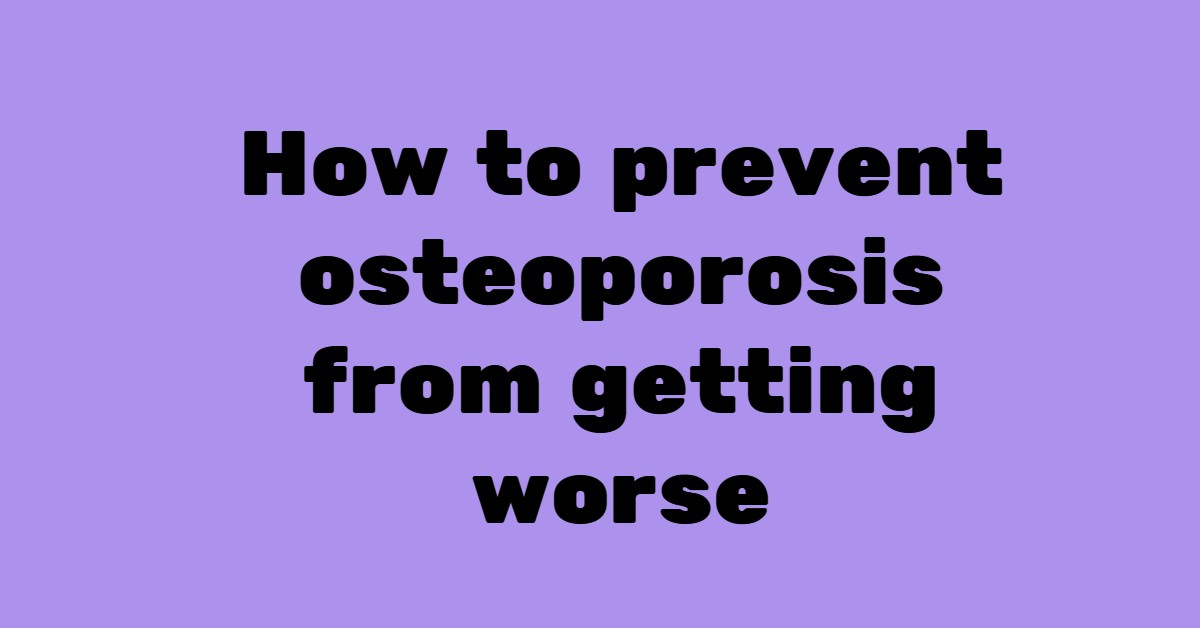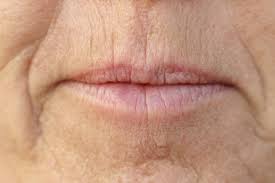How to Prevent Osteoporosis from Getting Worse

How to Prevent Osteoporosis from Getting Worse: Osteoporosis is a common condition that affects millions of people worldwide, especially women after menopause. It causes bones to become weak and brittle, increasing the risk of fractures and falls.

While there is no cure for osteoporosis, there are many things you can do to prevent it from getting worse. In this article, we will explore creative ways to prevent osteoporosis from progressing, including lifestyle changes, exercise, nutrition, and medical interventions.
With the right strategies and commitment, you can take control of your bone health and reduce the risk of fractures and other complications associated with osteoporosis.
FAQs & Answers on How to Prevent Osteoporosis from Getting Worse
Is osteoporosis Cured?
Although osteoporosis cannot be treated, it can be slowed or even prevented with medication and lifestyle modifications. Fall prevention, regular exercise, and a diet high in calcium and vitamin D can all help. However, they don’t always suffice. The doctor could advise medication because of this.
Is it possible to rebuild bone density?
Yes, it is possible to rebuild bone density through a process called bone remodeling. Bone is a dynamic tissue that undergoes a continuous process of breaking down and rebuilding. This process is regulated by cells called osteoclasts, which break down old bone, and osteoblasts, which build new bone. After your diagnosis, you can assist in avoiding quickly weakening bones.
Which fruit benefits bones the most?
So, which fruit is better for bones in light of that? Fruits rich in vitamin C include oranges, bananas, plantains, prunes, grapefruits, strawberries, papaya, pineapples, and guavas. Also beneficial for bones are fruits high in vitamin K, such as figs, blueberries, raspberries, plums, and grapes.
What is Osteoporosis?
Osteoporosis is a bone disease that occurs when bone mass and mineral density decline or when the composition and strength of bone alter. As a result, the strength of the bones may decline, raising the risk of fractures (broken bones). Osteoporosis is a “silent” illness because it frequently causes no symptoms, and you might not even be aware that you have it until you break a bone. In elderly men and postmenopausal women, osteoporosis is the leading cause of fractures. Any bone can break, but the hip, wrist, and vertebrae in the spine are the most commonly affected.
But why does Osteoporosis keep on getting worse?
Osteoporosis gets worse because it causes bones to lose density and strength over time, making them more fragile and prone to fractures. As people age, bone turnover slows down, and the body becomes less efficient at producing new bone tissue. Additionally, factors such as hormonal changes, genetics, and lifestyle habits like smoking and alcohol consumption can also contribute to bone loss and weaken bones. Without intervention, osteoporosis can progress and lead to serious complications, such as fractures, chronic pain, and loss of mobility. Therefore, it is essential to take preventative measures to slow down the progression of osteoporosis and maintain healthy bones throughout life.
How To Prevent Osteoporosis From Getting Worse
1. Regular exercise
Exercise should be done often. The recommended weekly amount of moderate-intensity aerobic exercise for adults between the ages of 19 and 64 is 2 hours and 30 minutes. Exercises that involve lifting weights and resistance training are especially crucial for boosting bone density and preventing osteoporosis.
Adults aged 19 to 64 should engage in muscle-strengthening exercises on two or more days each week, targeting all the major muscular groups, including the legs, hips, back, belly, chest, arms, and shoulders. This is in addition to cardiovascular activity. Before beginning a new fitness routine, it is advisable to speak with your doctor or a health professional if you have been diagnosed with osteoporosis to ensure that it is appropriate for you.
2. Get some sun
Sunlight stimulates the creation of vitamin D, which aids your body in absorbing calcium, from late March or early April until the end of September. As a result, diseases like osteoporosis are prevented by strengthening teeth and bones. Daily exposure to the sun for a brief period of time is advised. Because the sun is not powerful enough to produce enough vitamin D throughout the fall and winter, you must obtain it from your food.
3. Eat a well-balanced diet
Calcium and vitamin D are essential for strong bones. Eating a diet rich in calcium, such as dairy products, leafy greens, and fortified foods, can help maintain bone density. Vitamin D helps the body absorb calcium, and it can be found in foods such as fatty fish and egg yolks. Supplements may also be necessary for some people.
4. Avoid smoking and excessive alcohol consumption
Smoking and heavy drinking can contribute to bone loss and weaken bones. Quit smoking and limit alcohol consumption to no more than one drink per day for women and two drinks per day for men.
5. Get regular bone density tests
Bone density tests can help detect bone loss early and monitor bone health over time. Women over age 65 and men over age 70 should get a bone density test. Younger people with risk factors for osteoporosis may also need testing.
6. Manage underlying health conditions
Certain medical conditions, such as hyperthyroidism and rheumatoid arthritis, can contribute to bone loss. Treating these conditions can help prevent further bone loss and reduce the risk of fractures.
7. Take medications as prescribed
Some medications, such as bisphosphonates, can help prevent bone loss and improve bone density. Talk to your doctor about which medications may be appropriate for you.
8. Prevent falls
Falls can be particularly dangerous for people with osteoporosis. To prevent falls, remove tripping hazards from your home, wear appropriate footwear, and use assistive devices such as handrails and grab bars.
Conclusion
In conclusion, While osteoporosis can be a serious and potentially debilitating condition, taking proactive steps to maintain bone health can help prevent further bone loss and reduce the risk of fractures.
By implementing the strategies outlined above, you can improve your overall bone health, maintain your independence, and enjoy a higher quality of life.
Remember to talk to your doctor about any concerns you may have regarding osteoporosis and work with them to develop an individualized plan that is best suited to your needs and lifestyle.
With the right care and attention, you can take control of your bone health and prevent osteoporosis from getting worse.
Recommended:
How Does Rheumatoid Arthritis Affect The Heart And Lungs?
How Does Cystic Fibrosis Affect Intellectual Development?
8 Ways to Relieve Lower Back Pain and Promote Healing
How to Build Healthy Bones (Top Strategies: 2023)




